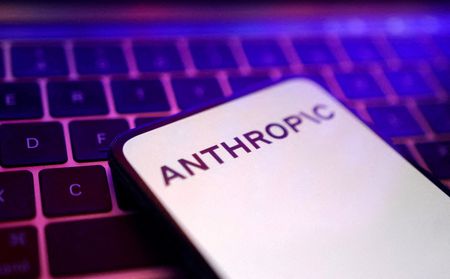LONDON (Reuters) -A global database of emerging market debt statistics created by top development banks is aiming to use artificial intelligence to parse risk more comprehensively for investors and help lower borrowing costs for developing countries.
UK-based AI firm Galytix is creating a framework to crunch numbers in the Global Emerging Markets Database (GEMs) to try to attract more private money into developing countries and address what some say is a gap between the real and perceived risks of placing money into the developing world.
“The outcome is very much that the risk in these countries is not as risky as what the world perceives it to be,” Raj Abrol, co-founder and CEO of Galytix, told Reuters on Monday, adding the new model could help potential investors understand the risk and offer more competitive financing.
“And as a result, you (will) see a lot more private capital that will flow into these markets as well.”
SPENDING NEEDS RISING IN EMERGING COUNTRIES
GEMs, created in 2009 by the World Bank Group and the European Investment Bank, is a collection of data on debt defaults, recovery rates and other data across emerging market companies and countries, originally designed to be used for information exchange between the banks themselves.
Some two years ago, the lenders started to share some of the information in GEMs on credit risk amid criticism from private sector investors demanding more granular information.
The AI push comes as developed countries slash aid spending and cut bilateral finance, narrowing sources of capital for some developing countries just as the spending needs – for infrastructure, climate change mitigation and social costs such as health and education – intensify.
The database pulls information from dozens of development banks globally, and it is anonymised within the system to enable sector- and country-level risk statistics.
In a statement, Gregor Cigüt, head of the GEMs secretariat, said the partnership would help turn the database’s “decades of risk knowledge into actionable market intelligence” that would enable more investment.
Even though the information was now public, Abrol said it was challenging for potential investors to parse the data in a useful way. Development banks are keen to enable investors to make use of data with limited added spending, but in a way that is compliant with data security and privacy.
The figures would be compiled by algorithms with continual human oversight, he said, and if there are too many gaps or flaws in data for any country or sector, statistics would not be produced.
(Reporting by Libby George and Karin Strohecker. Editing by Mark Potter)











